Have you ever witnessed water bugs quickly moving on the surface of a pond or lake during a hot summer day? These small, dark-colored insects are commonly referred to as “water striders” and they have adapted to life in aquatic habitats. What is the reason for water bugs appearing during the summer season?
Water bugs are typically found living close to the top of freshwater habitats like lakes and ponds. Insects are more active during the warmer months because there is more food available and better conditions for mating. During summertime, water bugs awaken from hibernation and start looking for food and mates as the temperatures increase. This activity is more noticeable on humid days with a high presence of moisture.
Why Do Water Bugs Come Out In The Summer
During the summer months, water bugs are more active because there are more food sources available and the conditions for mating are optimal. As temperatures rise, water bugs emerge from hibernation in search of mates and food. Additionally, warmer weather means more humidity, which is beneficial for these insects because it allows them to move more freely on the surface of a lake or pond.
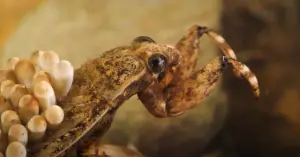
Where Do They Come From?
Water bugs are typically found near the surface of freshwater bodies such as lakes and ponds. During the warmer months, these insects become more active due to an increased availability of food sources and optimal conditions for mating. Water bugs may also be found in other areas where there is access to moisture, including wet soil or damp rocks. [1]
Where To Find Them
Water bugs can be found near or in bodies of still water, such as lakes, ponds, and wetlands. They love the warm summer days where they can bask in the sun on floating vegetation or take a dip in a pond to cool down. During this time, they are actively searching for food sources like small crustaceans, fish eggs, and other aquatic insects. They can also be found near rivers and streams, but they are less likely to wander far from their favorite watery habitats. As the days start to cool down in late summer, you may spot them migrating in search of a new warm home.
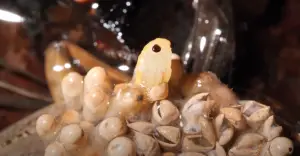
How Do Water Bugs Get Into The House (Entry Points)?
Water bugs can enter houses through small openings such as cracks, crevices, door and window frames, open vents, and pipe openings. Once inside, they may travel along plumbing lines and between walls until they reach their destination. They may also find their way indoors by hitchhiking on items brought inside from outdoors, such as potted plants or firewood. In addition to these common entry points, water bugs can also enter homes by swimming through toilets and other plumbing fixtures if they are connected to a body of water. This is especially likely in locations that experience heavy rains or floods during the summer months. To reduce the likelihood of infestation, it is important to inspect both the interior and exterior of your home for potential entry points that may allow water bugs to get in.
[2]The Signs Of Infestation
If you see water bugs in your home or business, it could be a sign that there is an infestation. They are drawn to dark, moist areas and can be found in bathrooms, basements, and other moisture-rich spaces. If you see a water bug, it is likely that there are more hiding nearby. Additionally, water bugs leave behind evidence of their presence in the form of fecal matter, egg casings, and shed exoskeletons. If you see any of these signs, it’s important to treat the area immediately. Furthermore, it is also a good idea to inspect other areas of your home or business for additional infestations.
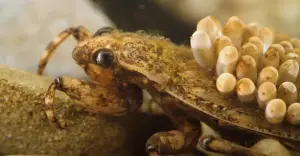
How To Get Rid Of Water Bugs?
During summertime, water bugs can be bothersome, but there are measures available to eliminate them. Reducing access points is one of the most effective strategies to prevent water bugs from entering your home or garden. Make sure that all windows and doors have tight-fitting screens with no gaps or tears. Inspect outdoor drains and seal any openings around them. Moreover, search for any other possible entrance points in the vicinity of the house and seal all openings or crevices using caulk or other appropriate materials. [3]
Pest Control
Water bugs are a common pest in homes, particularly during the summer months. They breed quickly and can spread disease, so it is important to take steps to control them. To control water bugs, you can take various measures like filling gaps around doors and windows, storing food properly, and using insecticides or baits. To prevent water bug infestations and future recurrences, follow these steps to safeguard your home. To keep water bugs away, make sure your yard doesn’t have standing water sources like pools or ponds. Also, eliminate items like old tires or containers that could hold rainwater. Finally, it’s important to regularly vacuum and clean your home, as these activities can help remove water bugs. Taking steps to control water bugs can help keep them away from your family and home during the summer months.
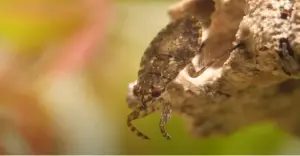
How To Prevent A Water Bug Infestation
Water bugs can be a nuisance during the summer, but there are ways to prevent them from taking over your living space. Here are some steps you can take:
- Keep your home dry and clean – To keep water bugs from invading, it’s best to remove any standing water sources around your house since they thrive in moist environments. Make sure to check for possible leaks under sinks or around pipes and seal them up immediately. Additionally, clean up any food debris that may have been left out to prevent the bugs from being drawn in.
- Seal up entry points – To keep water bugs from entering your home, inspect the areas around your windows and doors for cracks and gaps, and use weatherstripping or caulking to seal them up.
- Use bug sprays – Spraying insecticides around potential entry points can also be an effective way of keeping water bugs out. If you have an infestation, it’s best to contact a professional pest control company for help. [4]
Are Water Bugs Dangerous?
Water bugs may look intimidating, but they are generally harmless. They are not known to bite or sting humans, and there is no evidence that water bugs carry diseases. If you’re worried about coming into contact with a water bug, the best way to prevent it is to avoid locations where these insects typically inhabit such as ponds, lakes, and puddles of standing water. It’s also a good idea to keep an eye out for them when you’re near a body of water, as they can swim and scurry quickly. Overall, while their presence can be off-putting, these bugs aren’t anything to worry about.
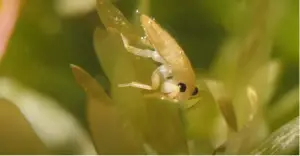
How Do You Treat The Bug Bites?
If you are unfortunate enough to be bitten by a water bug, it is important to treat the bite properly. The first step is to cleanse and disinfect the area with soap and warm water. If the bite is swollen, apply an ice pack or cold compress for 10 minutes. Do this a few times throughout the day to reduce inflammation. If itching persists, consider taking an antihistamine or using a topical hydrocortisone cream. If you experience any signs of infection, such as fever, redness and swelling around the bite, seek medical attention immediately. As always, prevention is key when it comes to water bugs; avoid entering areas which may be infested and use mosquito repellent for extra protection. [5]
FAQ
What do water bugs hate the most?
Water bugs, like most insects, hate extreme temperatures. They tend to stay away from excessively hot or cold conditions and prefer moderate climates such as those found in the summer months. Additionally, they are attracted to light, so during summer evenings when the sun has gone down and the lights come on, water bugs will be drawn towards them. This is why we often see them swarming around bright lights on a summer night.
What is the lifespan of a water bug?
Water bugs are a type of aquatic insect that live in both fresh and saltwater. They have short lifespans and typically only live for about one year before dying off. Although they can be found in water sources all year round, their numbers tend to peak during the summer months. The lifespan of a water bug depends on its species, but most species only live for a few months.
What smell keeps water bugs away?
There are numerous ways to prevent water bugs from entering your property. One of the most effective is by using a strong-smelling essential oil, such as peppermint or citronella. These oils have powerful insecticidal properties that can repel water bugs and other insects. To prevent water bugs from entering your home, try using garlic and onion sprays near doorways and windows. Additionally, you can make your own strong-smelling repellent using natural ingredients like apple cider vinegar, rosemary oil, or peppermint oil mixed with water in a spray bottle. If none of these methods work for you, there are also commercial products available that contain insecticides and insect repellents specifically designed to target water bugs. These products are typically sprayed around the perimeter of your home and can help to reduce the number of water bugs in your yard.
How do you prevent water bugs?
Waterbugs can be quite a nuisance, but the good news is, there are several ways to prevent them from coming in and taking over your residence. To prevent water bugs, you need to eliminate any sources of standing water or damp environments both inside and outside of your home. This includes things like clogged gutters, overflowing drains, and anything else that could be a breeding ground for waterbugs. Additionally, sealing any cracks and entry points to your home is also important for keeping out these pests.
Another way to prevent water bugs from entering your house is by regularly cleaning the area around it. This can include removing debris, leaves, and other items that may be serving as harborage for these bugs. You may also want to consider using insecticides around your residence’s perimeter as a further precaution. Finally, it is important to keep your home well ventilated by opening windows and doors throughout the summer months.
How do you get rid of waterbugs naturally?
Water bugs are most active during the summer months, but that doesn’t mean you have to suffer through their presence. There are a few ways to naturally and effectively get rid of water bugs from your home or garden. To begin, you should remove any stagnant water sources located inside or outside your house. Water bugs thrive in moist conditions so they can lay eggs and breed. This means draining buckets, bird baths, or containers that have collected water. If you have a swimming pool, check it regularly to make sure there are no bugs present. Next, use natural predators if possible. Many fish will eat water bugs so introducing fish into a body of water can help keep the population down. Toads and frogs also love to snack on water bugs so if you have a pond, they can be beneficial. Finally, use natural insecticides or repellents such as essential oils or vinegar to discourage the bugs from coming near your home.
Does light attract water bugs?
Water Bugs are attracted to light, both natural and artificial. In the summer months, they come out in greater numbers because of the longer days with more hours of sunlight. Since water bugs live near ponds and other sources of still water, bright light can easily reach their habitat. Artificial lights from nighttime activities such as outdoor lighting or campfires also draw them in their search for food. Also, because the air temperature is warmer in the summer months, waterbugs can be more active and look for food farther away from their natural habitat. Once a waterbug finds a light source, it will feed on any small insects that are attracted to the light. This provides them with easy access to an all-you-can-eat buffet of food!
How do I get rid of roaches once and for all?
To quickly and easily get rid of roaches, begin by identifying their source. There are various ways that roaches can enter your home, such as through open doors or windows, cracks in walls or floors, plumbing pipes, drains, and other openings. Once you have identified the entry points, it’s important to seal them off with caulk or weatherstripping. This will help keep them from entering your home in the future.
It’s also important to practice good hygiene and cleanliness in your home to make it less appealing for roaches. Make sure all food is stored properly, vacuum regularly, and don’t leave dishes or debris out overnight. Additionally, you can use baits and traps around areas where you suspect roaches are present. These will help to reduce the population and get rid of them for good. If you are unable to get rid of the pests, you can contact a pest control company to help you with the infestation. With their experience and expertise, they can provide a thorough and effective treatment to take care of your roach problem once and for all.
What are water bug enemies?
Water bugs, or water beetles, are an important part of the aquatic food chain. They are prey to a wide variety of predators, including birds, fish, frogs and other small aquatic animals. Some insects such as dragonflies also hunt water bugs for food. The presence of these predators can influence when and where water bugs come out in the summer. For example, some water beetle species only come out at night when their predators may be less active or absent altogether. Additionally, water bugs often congregate near shorelines and shallow waters that offer them protection from larger predators such as fish and turtles. Knowing how to identify and understand the natural enemies of water bugs can help you determine why they appear more frequently during certain times of the year.
What is the difference between a water bug and a roach?
Water bugs and roaches are two different species of insects. Water bugs, also known as true water bugs, are usually larger than roaches and live in or near bodies of water. They can grow to be up to 4 inches long, while roaches only get up to 2 inches in length. Water bugs are equipped with a flat oval-shaped body that is well-suited for swimming. They have two long antennae on the front of their head and three pairs of legs near the middle of their bodies which they use for swimming. Roaches, on the other hand, have segmented bodies with six legs and two short antennae at the front of their heads. Water bugs feed on small aquatic creatures like crustaceans and fish, while roaches eat anything from leaves to dead animals.
What raid kills water bugs?
Water bugs can be difficult to deal with, especially when they come out in large numbers. Fortunately, there are several effective ways of killing large numbers of water bugs. The most common method is using a commercial insecticide or bug spray designed to kill insects on contact. Other options include using natural insecticides such as citronella oil or neem oil, which can be sprayed directly onto the affected area. For heavy infestations, foggers may also be used to fumigate areas and kill large numbers of water bugs in one go. Finally, some people opt for the old-fashioned method of simply collecting the pests with a net and disposing them outside. Whatever method you choose, make sure that it is safe and effective before you apply it to your home. In addition to killing water bugs, it’s important to take measures that will prevent them from coming back in the future. This can be done by sealing any cracks or crevices in your home or building where they may be able to enter, as well as eliminating any sources of standing water, such as leaky pipes or overflowing gutters. Keeping these areas clean and dry should help reduce the presence of water bugs substantially.
Useful Video: How To Get Rid Of WATER BUGS In Your POOL | Swim University
Conclusion
In conclusion, water bugs come out in the summer because they need warm temperatures to help them in their reproduction cycle. Water bugs are attracted to light and can enter through cracks around doors and window sills, looking for an ideal place to lay eggs. Understanding why these insects emerge during the warmer months can help homeowners take steps to reduce their presence on the property. Simple measures such as keeping door and window seals in good condition and eliminating sources of standing water can discourage water bugs from coming into the home.
References:
- https://www.gardentips360.co.uk/why-do-water-bugs-come-out-in-the-summer/#:~:text=Waterbugs%20come%20out%20during%20the,insects%2C%20tadpoles%20and%20small%20fish
- https://theyardandgarden.com/where-do-water-bugs-come-from/
- https://positivebloom.com/why-do-water-bugs-come-out-in-the-summer/
- https://growyouryard.com/why-do-water-bugs-come-out-in-the-summer/
- https://www.gfloutdoors.com/why-do-water-bugs-come-out-in-the-summer/





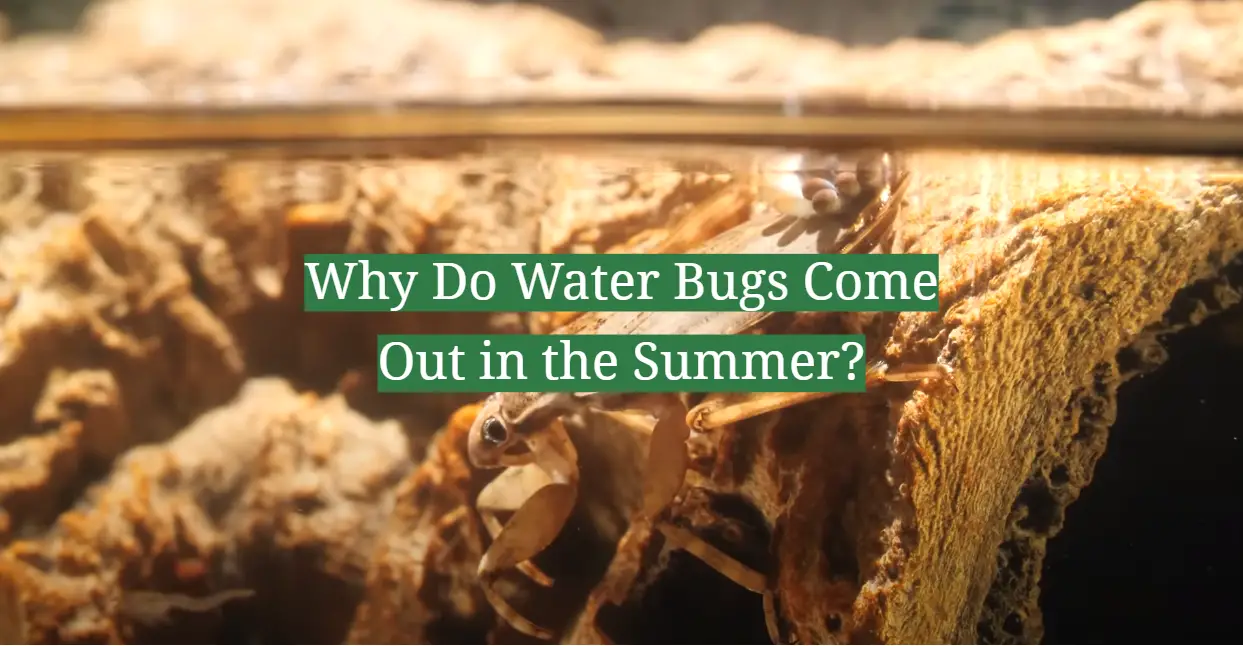




Leave a Reply
View Comments